Don’t you just love listening to quirky and fun travel stories? In this podcast, Phoebe Thomas lets us in on her life of travel. From moving at only a few days old to living in France and raising two children, it seems she’s been everywhere!
Or you can always subscribe to one of these:
Apple Podcasts
Google Podcasts
Spotify
Amazon Music

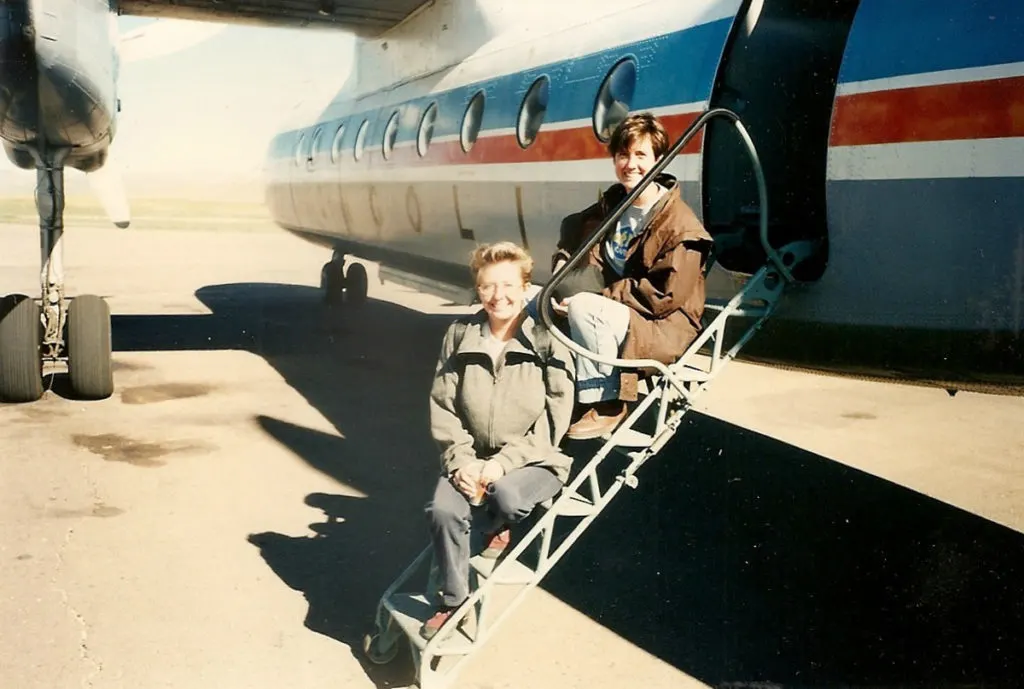
Show Notes
01:15 – Travel evolution, born into travel
02:34 – Cold War Czechoslovakia
05:14 – Iceland as a teenager
07:31 – Vietnam in the early nineties
10:42 – Travel with kids
21:02 – Adventures with food in Vietnam
29:12 – Serendipity in Montenegro
41:40 – Living through history in Eastern Europe
45:43 – Mongolian travels
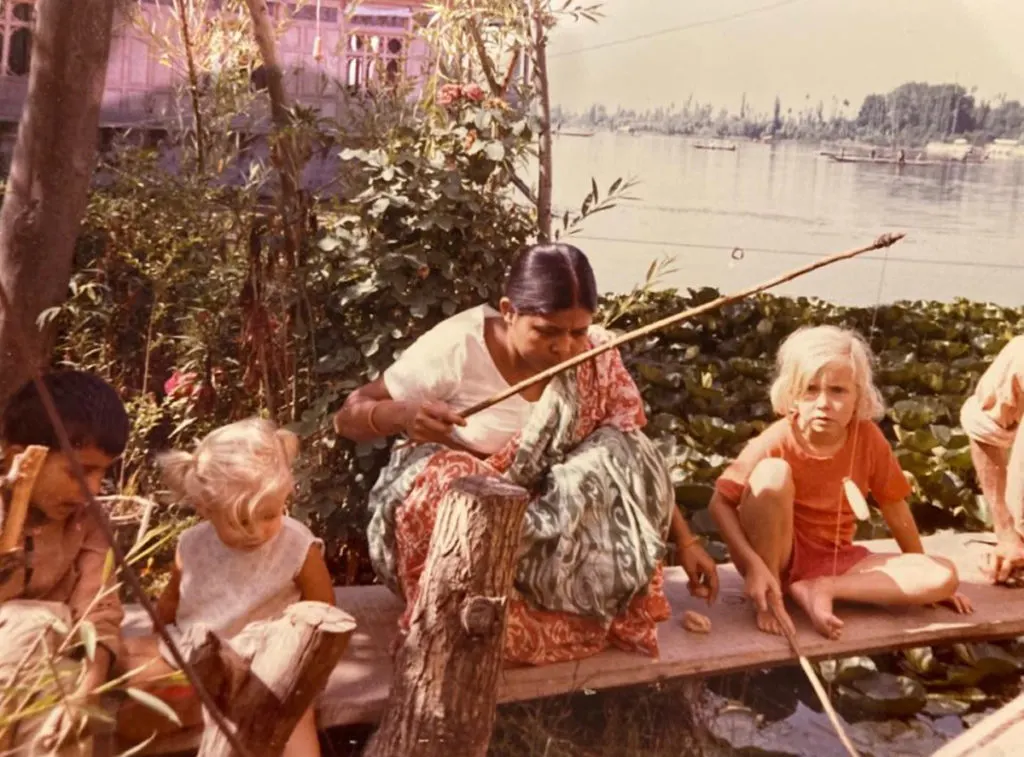
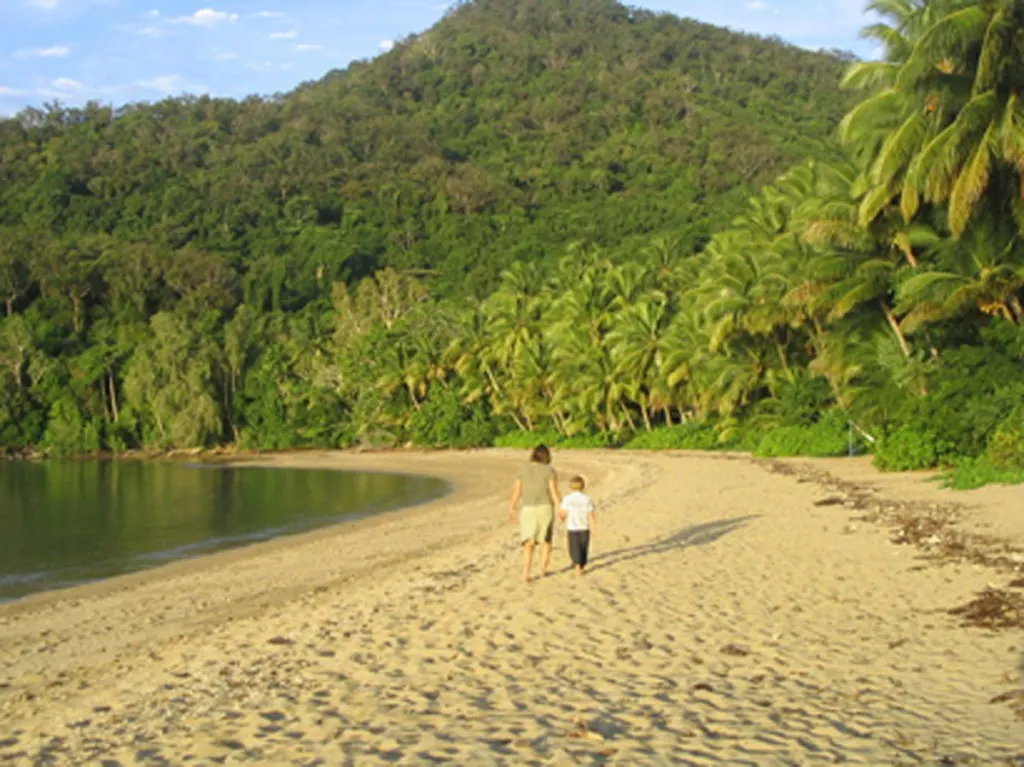
Other inspiring interviews with intrepid travelers:
Guinness World Record Climbers – Iain and Adam
Judging Tiramisu with Christina and Cynthia
Getting to All 63 National Parks – Brad and Grandma Joy
Thoughtful Travel with Amanda Kendle
Coritta Travels with her Family
Jennifer Lloyd Talks about Travel to Volunteer for Animals
Morgan and Sage – Hiking in the Dolomites
Morocco Desert Hiking with Eva
Kirsten Discusses Travel with Kids
Mary Jo tell us about her book – Secret in Seattle
Marissa tells us about finding her Irish Ancestors
Worth Mentioning
Phoebe’s Website and her articles all about traveling in France
Lucky Dip, By Richard Thomas
Yugoslavia dinar revaluation
Top Ten Things to do in Mongolia
Seven Reasons We Can’t Wait to Go back to Bulgaria
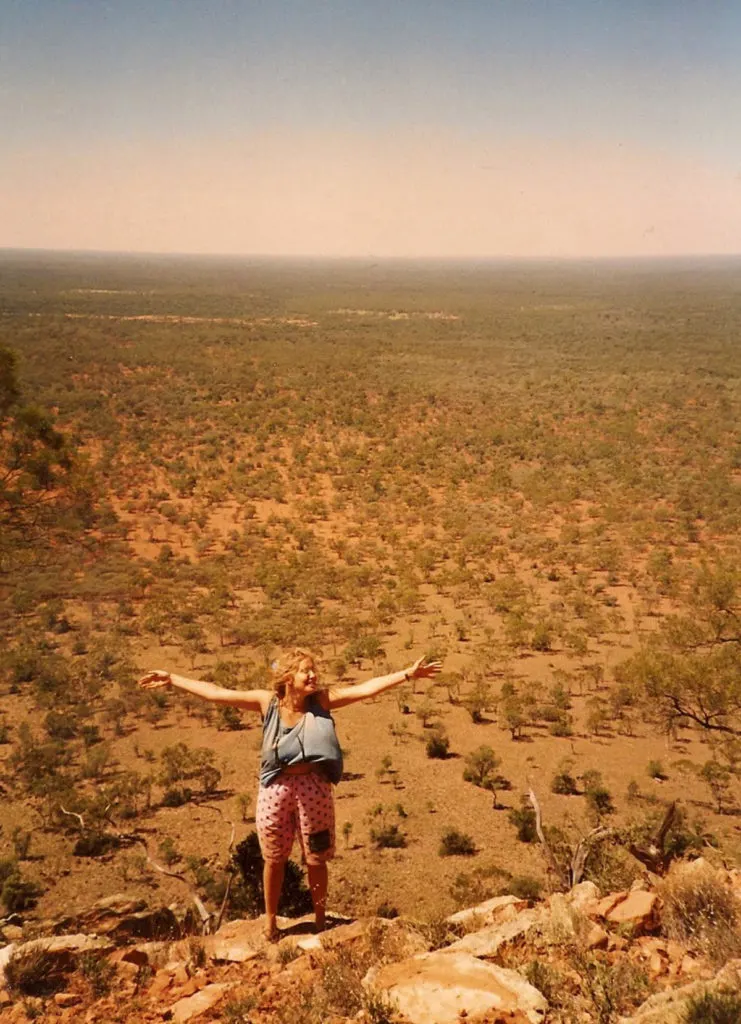
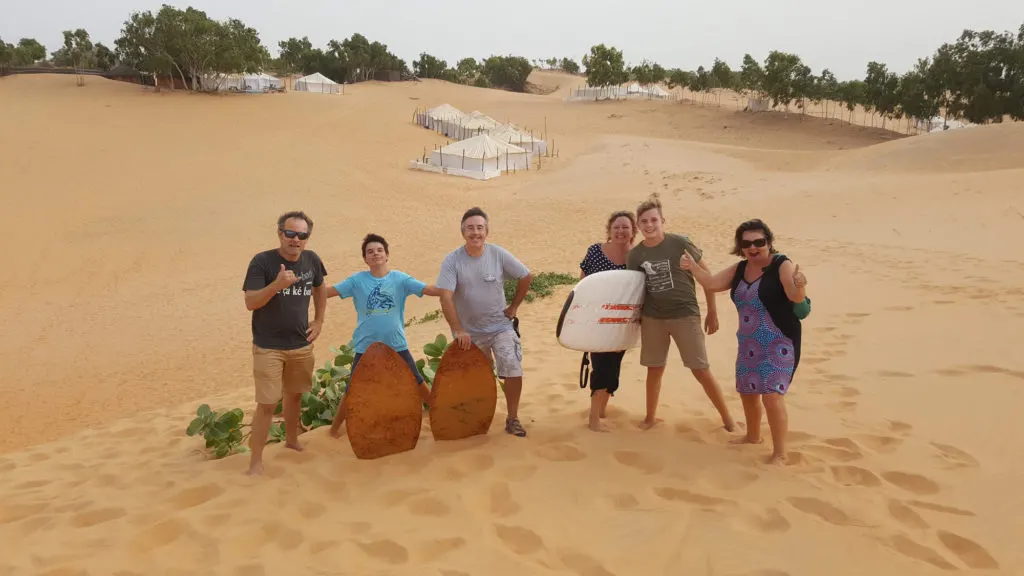
If you enjoyed listening to these travel stories, we have more podcasts with fun stories that you might love:
Join our Community
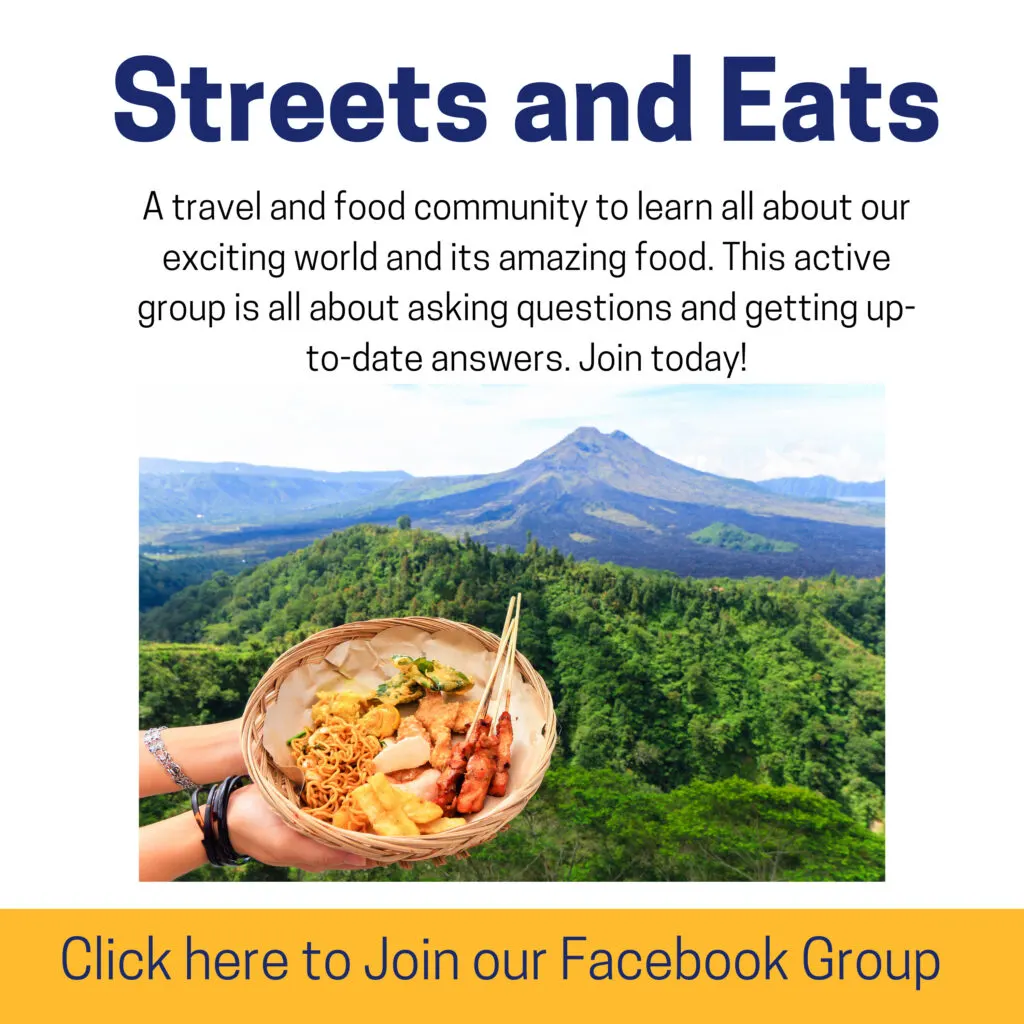
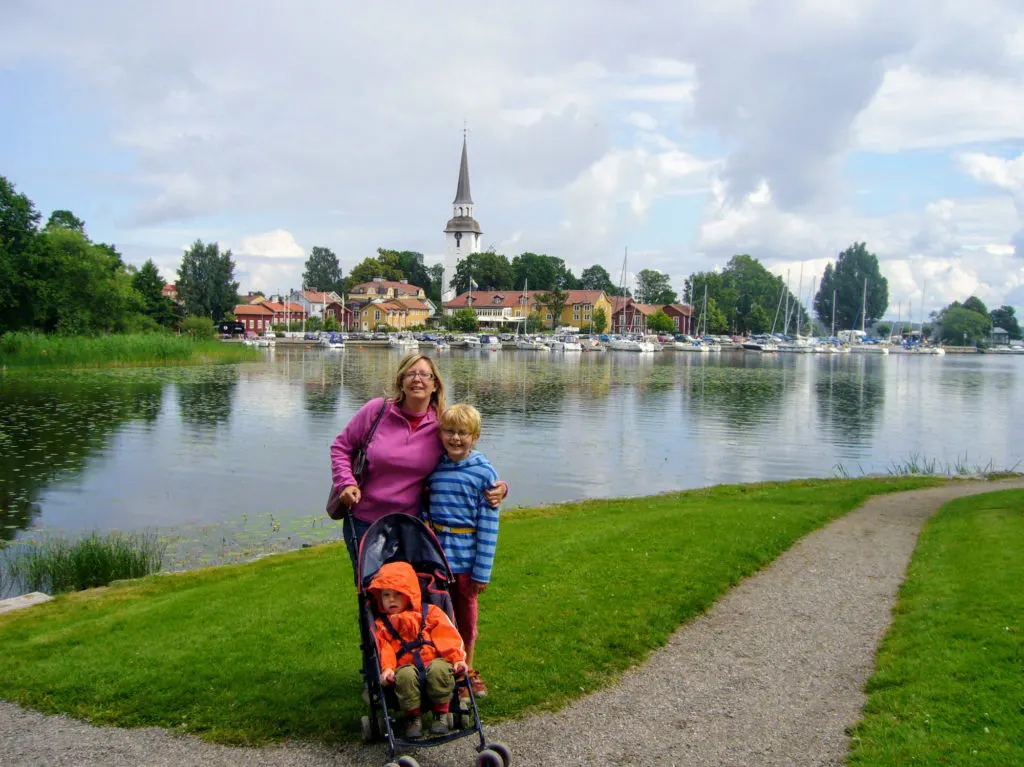
Full Transcript of Podcast
Jim 0:00
Hello, everyone, this is episode twenty-nine and today we’re going to be meeting up with our good friend Phoebe. She lives in France and she’s going to be sharing her travel evolution and some really fascinating travel stories.
Welcome to Streets and Eats the travel and food podcast dedicated to taking our listeners to the sights, sounds and flavors of fascinating places near and far, both on and off the beaten path. We’re Jim and Corinne Vail and we’ve been traveling internationally and domestically together for decades, visiting more than 90 countries and all 50 states in the USA. We’ll share all of the local knowledge and food expertise we’ve gathered through years of living as expats in Asia and Europe, as well as traveling with family spanning multiple generations around the world. Join us each week for a new episode.
Corinne 0:43
Welcome to Streets and Eats, Phoebe, it’s so good to talk to you. We’ve known each other online for years.
Phoebe 0:51
Yeah, amazingly long time actually, it’s great to talk to you guys.
Corinne 0:56
Yeah, you too. I think one of the things that we’ve always known is that you have a real fascinating travel history and travel evolution, if you will. Why don’t you give us a little idea about how you got into this wonderful world of travel?
Phoebe 1:15
Yes, sure. I was basically born into travel. Seriously, I moved country at 10 days old, which I don’t think is even possible these days because of, you know, you can’t get a passport before 10 days now. But yeah, I was born in Paris. And my dad was working for NATO at the time. And Charles de Gaulle kicked NATO out of France and so we moved to Brussels. So basically, my mom stayed on until, you know, I was born and they could get me a passport, so that we can move to Brussels, it was all happening literally around my birthdate. So we moved to Brussels. And basically, you know, I’m back now in France.
So I’m always saying, I’m born in Paris and all this, but it’s absolutely not why I’m in France now. It’s pure coincidence. And, of course, this made a headache for French bureaucracy in the beginning of my time being back here. But that’s another story. So yeah, basically, from Brussels, we moved to the UK. Then we moved to Delhi, New Delhi, where I lived from the age of four to eight, with my parents, my dad was by this stage working for the Foreign Office rather than NATO, NATO as a secondment.
And so from Delhi, we went to Czechoslovakia as it was in those days, because this was in the late 70s, early 80s. Very much behind the Iron Curtain, you know, very cold war times. We were I mean, you just can’t even begin to imagine how different it is from nowadays. We were not allowed to associate with, with the local Czech people. There was no tourism. I mean, literally, you know, there was nobody there.
Corinne 3:07
We went rather early to Czech Republic before it converted back. So probably a 1990, late 80s, early 90, something like that. Before 91. Anyway, and it was dismal. I mean because it felt gray.
Jim 3:28
We went shortly after it had just reopened to the west. So they were getting some tourism in, not much. But yeah, everything was still pretty much unchanged from from the communist times.
Corinne 3:45
And you could walk across Charles Bridge and not touch anybody, easily. Like, nowadays, that doesn’t happen. It’s just so crowded.
Phoebe 3:57
It’s just crazy the difference. I mean, but back then, like I said, there was literally there was no tourism. The only foreigners were, you know, a few NGOs and embassy staff. But that was it. And, and we used to go to, funnily enough, this is one of the silliest craziest stories that when I first met you is that we used to go shopping in Weiden. Where you lived. Because there was no shopping. I mean, there was nothing to do so we would do sort of r&r trips across the border to Weiden.
Corinne 4:29
That must have taken you a couple of hours each way.
Phoebe 4:33
I think, I mean, with the border crossing and everything it was probably more like three but make a day of it and or even obviously stay overnight. But it was, I mean, it was just amazing times, you know, we used to like you say, you know, cross the Charles Bridge with nobody and we went everywhere on roller skates. I was teen. I was a young teen and I would literally just roller skate around Prague. And we were always followed. We always knew who the this guy was following us. Yeah, we used to call them Boris and they always wore a bright yellow tie. I mean, they weren’t subtle. But we’d we see them, you know. Anyway, it was just was such fascinating, such crazy different times.
And from there we went to Iceland, which you know, was way before Iceland became the popular destination that it is now. Back then there was, I mean, there were four hotels in Reykjavik. That’s it. And by this stage, I was a late teenager. So I was, I mean, I was sort of 15 to 18. So the perfect age for sort of going out at night. But it was so safe. You know, that my parents, I never had such thing as a curfew, they never said you have to be home by you know, 10:00, 11:00, midnight, whatever. And also, it was the age by which time Icelanders could speak fantastic English. So there as opposed to Prague, I made great friends who I still have.
Icelandic friends who, you know, still, we’ve seen them since we’ve been back there. And we’ve met up in Paris, and one of them’s coming to stay in the summer, fingers crossed. So that, you know, that was amazing. Again, no tourism, the odd school trip for geography. And, but, you know, Icelanders, were, you know, just so open and so easy to talk to them, and such good friends that thethirty-five years later, yeah, still really great friends. From Iceland, then I became an adult.
So I went off and did my studies in Australia on my own, irrelevant of my parents, because my mum is Australian. So I wanted to go meet and get to know her side of the family. And then I moved to Vietnam, because I got a job with an NGO in Hanoi, from 92 to 96. Again, no tourism, you know, when I was first there, you had to apply for a permit to leave Hanoi city limits. I was allowed in on a one way visa, I can’t even begin to imagine this now. My passport was taken off me. And I didn’t have an exit visa. And I knew every single car in the city, can you imagine? I mean, you’ve been to Hanoi? Haven’t you?
Corinne 7:31
I have. Yeah. And you can see how the traffic has changed. I agree that that’s one indication of how tourism can affect or how time affects us. Because we’ve been places where there’s no traffic at all. And now like you said, Hanoi as an example. It’s crazy traffic. So China was another place. First time I went to China. I mean, I have pictures of open roads in Beijing with no cars on it. You can’t even imagine that now.
Phoebe 8:04
Yeah, I haven’t been back to China since 96. So I can’t imagine how it’s changed. I went to Beijing twice in the mid 90s. Both times I was taking train trips; one time from Hanoi to Helsinki, and one time from Beijing to Moscow, just the regular TransSiberian. But I haven’t been back since. I’m sure it’s changed so so much.
Jim 8:28
So I gotta imagine, well, when we went not that long ago, in order to cross the street, we had this trick where we would find an old, an elderly lady who was crossing the street. And we were just kind of following her shadow, as they would just walk across fearlessly, and everybody would avoid them. So if you’re in the shadow, then the traffic would just go around us too. I imagine you could just walk across the street no problem back then.
Phoebe 8:57
I mean, you could, it was definitely easier than now because we went back again in 2016. So I have seen it recently. But it was still crazy, because there were just so many bicycles and motorbikes and cyclos, it was still packed, but obviously, I mean, nothing like, nothing that could hit you as dangerously as a big car or truck. But it still had that craziness of just everyone just merging like that and sort of coming out the other end. But yeah, nothing. Nothing dangerous. Really. If you got hit by a motorbike. Well, um, you’ll still get hurt but not as bad as a taxi or a truck or whatever.
Yeah, so basically after Vietnam, Vietnam is where I met my French husband and when we left there, we both left at the end of contracts. And we both said, well, we’ll you know, whoever gets the first good job the other follow. We weren’t necessarily moving to France. But how many years later, 25 years later, here, we still are in France. It was never a conscious decision. But it was work related. And we’ve lived in France ever since Vietnam, but we have moved eight times. And we have moved, we’ve lived in six different departments, from the very north Calais area, to Paris to now where we are in the south, had 10 years in Paris, which was amazing. And lovely. And I’ll always, always love it. It’s where my two kids were born. I’ll never get sick of Paris.
But at the same time, we were so delighted to move down here to the south. And and basically, you know, we’ve ever since being in France, we’ve just done kind of regular travels, as I would call it, nothing… I mean, we’ve both been employed in jobs where we can only take, you know, your standard two weeks holiday at a time. But having said that, you know, we have two kids, our oldest is 22. And we took him on his first trip abroad when he was three months, I think. So we have traveled with the kids ever since they were babies, never shied away from, you know, taking them. But when I say traveled, we’ve never, we’ve never been to theme parks. We don’t do kind of traditional family friendly stuff, we drag them around medieval cities.
Corinne 11:38
Nothing wrong with that.
Phoebe 11:41
They’ve been to Krakow and all over Poland and places that you wouldn’t really say were the most obvious kid destinations, but they loved them all, you know? And we just yeah, we’ve, we continue to travel, we’ve taken them back to Vietnam. And we’ve had a few long distance, long haul travels with them. But mainly it’s Europe and road trips, which I know you guys like.
Corinne 12:08
That’s what we love. Yeah.
Jim 12:10
In fact, one of our first road trips as a family was with our three month old daughter. We were living in Germany at the time, we just kind of threw everything into our little Volkswagen Polo, and headed south one summer. We went through France and basically spent our time along the coast, southern France then down into Spain, the Costa del Sol, Costa Brava, and then back up through Spain. It was a great three, three and a half weeks. And, you know, we survived with a three month old baby, I think, not only survived but thrived.
Phoebe 12:48
Absolutely. Yeah, definitely. That’s so easy at that age anyway.
Corinne 12:56
It’s funny, because people with children who want to travel, they’re always worried about taking the baby. Well, first of all, the babies are the easiest ones to travel with, because you strap them on and off you go, you know. But as they get older, maybe there’s some other challenges. Although I tell everybody, I think if they get used to it, really, you don’t notice it. I mean, sure. Are they gonna have a meltdown every once in a while? Yeah, but the thing is, they’re gonna have a meltdown, wherever they are. So it doesn’t really matter. And people have kids all over the world. Surprise, surprise. So they they kind of know how kids are.
Phoebe 13:52
It doesn’t even occur to me that there’s any reason not to. I mean, it’s so natural to just travel with children. You know, it’s just so natural to just put my kids in the car and off we go. And, and yeah, there’s when people say “Oh, but you know, don’t, don’t they need entertainment?” I remember someone asking me, “Oh, are there any parks?” I can’t remember where we’d been, maybe on the Poland trip. “Are there any parks?” And I said, “Oh, yeah, he had plenty, you know, lots of nice nature. You know, places you can go and hike.” And she meant no, no, the theme parks. I was like, oh gosh, honestly don’t really know if there are any theme parks. And for her to take a child there had to be a theme park. So, you know, different kind of travel, like going on a holiday has to be to a place with entertainment rather than…
Corinne 15:09
With a child. Yeah, we’re not big theme park people either. However, my kids occasionally wanted to go to one. So when we were in Australia once or when we were in Paris, actually, they were like, well, let’s go to Paris, Disney, let’s go to whatever, Euro Disney. Is it called Euro Disney or Paris Disney? It’s one of those. And somewhere in Australia, there was a theme park too. And I’m like, we’re not going to theme park, but you know, we will drop you can spend the day and we will pick you up. So that’s how we cover that. And we only did it twice. I mean, it’s not like they asked to do it all the time.
Jim 15:22
They also went to Tokyo Disney. And it was the same type of thing. They were teenagers. So you know, you want to go to Tokyo Disney, get on the train, have fun, go on your own, you’ve got a train ticket, you know how to do it. So you know, off they went for the day.
Phoebe 16:05
When we were living in Paris, we started off in central Paris in the fourth arrondisement and then, you know, moved out to the burbs to have more space with kids, and those suburbs were nearer to Disneyland. And lots of my local friends actually had annual passes. And on Wednesdays in France, there’s no school or there’s no school in the afternoon, but there’s usually no school at all. And it’s when you do your extracurricular activities. So kids, you know, learn a musical instrument, or they do art classes, or they do their sport. And some of my good friends there, on Wednesdays, went to Disney. That’s what they did. And it was just, I, it kind of horrified me in ways.
But I did feel so sorry for my kids. Because honestly, I was such a mean mum, all their friends were off at Disney. And they were being made to learn the piano and, you know, that sort of thing. Anyway, they have been. I think my oldest has been about three times. But I only went once and we’ve never paid. I went the one time when a friend who was working there got us free tickets. And I have to admit, you know, once I was there, I could see just how much fun it was. I mean, of course, it was fun. Right? But, you know, totally delighted not to ever have to go again.
Corinne 17:26
That’s how I am too. And now we have a grandchild and I told my kids, I said, “You guys want to go to Disney,” my girls love Disney, I said, “you’re gonna go to Disney. That’s fine. I’m gonna be the grandmother that stays home. When your tired with the baby or however old he is, you can bring him to me and I’ll take him. If you stay out all night. I don’t care.” It’s just not me. At all. One time, Erika, my youngest. One time we were in this town in Germany, and we were going for the day and they have a beautiful cathedral in the town of Speier And we were going to the Jewish cemetery. And we were doing all these things, I had a little list, you know?
Erika looks at me, she’s five, and she says, “Mom, are we going to a museum?” And I said, “Well, I’m sure we’ll go to a museum. We go to a museum every time we go out.” Well, we didn’t go to the museum that day. So at five o’clock, around four or five in the afternoon, we’re about to head home and she starts melting down. “You said we’d go to a museum.” I’m so sorry, what five year old has a fit about not going to a museum? I said we’ll go to one another day. It’s all what you get used to I think. You know they love going to those old cathedrals. They love going to, like you said Roman ruins and old cities and walking up and down cobblestone hills and alleyways. And I mean, that’s what we love, right?
Phoebe 19:07
You can make it so much fun. I remember at one stage when we first moved here my littlest was around two and he we used to make paper planes and throw them around these little medieval villages so that he could kind of run and catch it. And it was his way of just, you know, because I mean, age two he wasn’t remotely interested in the village. But he had such a great time because he was just you know, chasing these paper planes. And we tried obviously, to make sure they never actually went over a cliff and got lost. But you know, apart from obviously the environmental issue of you know, not wanting to litter if it did get lost. It wasn’t you know, a favorite, favorite toy, and even a ball, sometimes you kick a ball and it gets Lost. It’s a problem. Yeah, the amount of paper planes we’ve thrown around medieval European villages.
Jim 20:09
That’s a great idea.
Corinne 20:11
My grandson is almost two, he’ll be two in April and airplanes are his favorite thing in the world. So I can see how that would be so worth it. He loves them so much that if I just draw one on a piece of paper, he’ll pretend to fly that and it’s flat. It’s like one dimesnional.
Phoebe 20:28
He’s a future traveler!
Jim 20:30
Yes. He definitely is.
Corinne 20:33
Unfortunately, as a pandemic, baby, he would have been long traveled by now. But yeah, he’s been stuck in the state. We have taken him on a couple of things around the state and stuff like that. And he’s done beautifully but, you know, nothing international yet, of course. So we’ll see. So, I remember you sent me a message. You said you had some good food stories. You know, I always love a good food story. Do you remember what you were talking about when you said that?
Phoebe 21:02
Oh look, one of my favorite has got to be when we were leaving Hanoi. Our landlord invited us to a meal, a dinner in the evening, at his place. And obviously, it was quite a feast and a very special occasion. And he lived on West Lake, you know, the big lake out in the north west of Hanoi, you know, the huge lake, the main lake. Which I daresay nobody would eat the fish that they pull out of there now, but back then, even though it possibly was more polluted, I don’t know. But people would eat stuff out of this, out of the lake.
And so we had snails and we had shrimps, and we had all sorts of things. And then came these little sort of galettes. They looked like rosti, sort of, you know, grated fried potato. And I sort of helped myself to a couple of them thinking, “Oh, these look yummy.” I crunched into them. But as I got closer, I could, I suddenly saw what it was. And it wasn’t grated fried potato. They were, there was like maggots, it was little insects.
Corinne 22:08
Oooh, I knew you were gonna say some kind of worm or something!
Phoebe 22:11
Exactly some sort of wormy, insect things deep fried into a sort of little fritter. And obviously, you know, it’s, I had taken a couple of bites, actually, before I noticed, and I had quite enjoyed it. And as soon as I saw what it was I just, you know, you just want to heave and the host, our landlord went out to, you know, to the kitchen to get something or whatever. And I made sort of eye contact with my husband. You know, “have you seen what we’re eating?” He said, “No.” Tucking happily in. I said, “Take a look!” And he did exactly what I did. Oh, my God. No, you know, I have eaten some pretty horrible things that I’ve known about. But this one, we didn’t know what we’re eating. And it was just such a surprise.
So we then had to do that whole mind over matter thing. You know, actually, we were enjoying it before we saw what it was right? Right. So, you know, forget that it’s deep fried insects and worms or maggots or, you know, larva of some sort. So that was one of the, you know, the biggest sort of surprises because, I mean, Vietnam was obviously the place where I’ve eaten probably the most unusual things.
I remember going on a work lunch with some colleagues. And they presented little, whole sparrows, deep fried. And they were literally picking them up and crunching the head off. You know, it is I mean, the head of a little bird like that is just bone, and there’s nothing there. And they were sort of crunching on them. And, you know, I’m very, very aware of culturally not offending and trying my best to eat everything. But that was one step too far. I could not pick up a deep fried sparrow and crunch through it’s skull. I couldn’t do it. The only time I’ve said no to a, you know, a particular food experience. I can’t honestly remember what I said as an excuse. I don’t think I could have suddenly been a vegetarian because I’m sure I’d been eating other meat but I just I couldn’t do it. It was the one which was one step too far.
I have eaten snake and dog, which I know you’ve had… one of your recent podcasts was on rescuing dogs from the food trade. I tried it once in Hanoi as a sort of, again, a cultural thing with being taken by Vietnamese. I would never do it again. And it was also 25 years ago, nearly 30 years ago when we were much less kind of aware of animal rights and things. But in all those cases, you know, I knew what I was doing so, and I managed it. But eating that bird, I couldn’t do it. And eating the deep fried maggots made me heave because it was such a surprise.
Corinne 25:17
I can imagine in Vietnam. Yeah. Even in France, we had a petite oiseau pate. And the thing about that was, a little bird pate, the bones were in there. So it was crunchy. I mean, we ate it. And actually, it tasted just fine. But the fact that we were, like you said, crunching on bones, and we knew what they were because it’s in the title. So we’re pretty sure we knew exactly what it was even. Anyway. So it was just
Jim 25:54
Yeah, but sometimes the title is just a name. And it doesn’t really necessarily mean that it’s got like a baby bird whole skeleton in it. Yeah, until you’re like halfway through the small little pot and you go in for another scoop and outcomes. Yeah. Claw and bone.
Phoebe 26:15
it does have some pretty horrible stuff. I mean, it has obviously some great stuff. But there’s… Yeah, they do like a lot of innards and things which I can’t be going with. I do remember another another story where I was pretty surprised by what I ate. And again, it turned my stomach and it was a very surprising place. It was actually in Iceland. Well, Iceland there’s some foul stuff to eat. This was at the Chinese ambassador’s house at a banquet that she gave to my family, because back then, I don’t know if it’s still the same for Chinese diplomats, but they weren’t allowed to have their children on in posting with them as a way of making, hopefully, that they would come back and wouldn’t defect. And so she had children very much the same age as me and my brother and sister.
So they invited us over for a big banquet to sort of have children with them. And I didn’t know much about Chinese food at that stage. I was probably about 15 or 16. I mean, I’d had you know, Chinese takeaways in English towns, which were very sort of banal Chinese food, but I’ve never had much more authentic, certainly not cooked by Chinese. And so there was all these yummy things and then there was this huge pile of what I took to be sort of like noodles. And I thought, “Oh, you know, that’s, that’s a given. That’s gonna be yummy. I’m gonna have lots of that.” So I help myself to big thing of this, crunched into it, and they were crunchy, not soft as you’d expect noodles in a sort of really, kind of freaky way. And, you know, sort of what is this? And they were jellyfish tentacles.
Corinne 28:11
Oh interesting. I’ve never had that.
Phoebe 28:15
I’ve never ever had those before or since. But it certainly marked me as a food experience. But those are all sort of a bit freaky, creepy ones. I do remember a much more recently, and a really lovely, sort of one of those serendipitous tales in Montenegro. And we had booked an apartment, which we were having trouble finding. So we turned up, but we pulled up this car outside the house and a man rushed out and says, “Oh, have you come to stay?” And we were looking at our address, and we’re like, I don’t think it’s here. Sorry. And we showed it to him and he sort of pointed and sort of had this sort of smug look on his face and was like, “Aha, yeah, okay.”
Off we went. We find the place we were staying. It was absolute disaster. I mean, there was a heatwave going on. And it had one window, honestly, about, I don’t know, 20 centimeters high and no aircon, no fan or nothing. There was no way we could stay. So we sort of said to them really sorry. I mean, we’re very hardy people. We can stay kind of anywhere. But here. We couldn’t stay there in this heat, it was like 40 degrees Celsius. And, and we said we’re really sorry, we can’t stay and so we kind of walked back to this other place where this man had rushed out. We very sheepishly asked, “Do you have anywhere to stay? Any kind of thing?” Anyway, so we remember we stayed in this guy’s lovely sort of, not self catered, but just a big apartment. He did meals and we couldn’t really communicate much. He had a little bit of Italian and I have very little Italian but more than I have Montenegrin, which I don’t suppose is a language…Serbian or whatever.
Corinne 30:21
Right.
Phoebe 30:22
And so he’s, you know, he said basically mangare, mangare. Yes, yes, we’d like to mangare, and he just said carne or pesce? So it’s like meat or fish. That’s all we could decide. And we were on this very pretty but really polluted river. And he was pointing, you know, fish from there. And we were like, “Okay, I think we’ll stick to the meat in this case.” And so we had this incredible feast of so much food, it just went on and on and on. And there was another young family staying there. I think he might have been German, I can’t really remember. But anyway, they, they’ve been traveling around Montenegro for about a month. And so they knew much more about kind of prices, and we’d only been there about three or four days.
And they knew much more about what to expect. And so we had this, you know, this fantastic meal, it just kept coming, and all this wonderful home cooked food. And he said, you know, at the end, would you like breakfast? And we were like, “Oh, yes, please.” And in the morning, there was a pile of pancakes, honestly, like this high. So you know, a good foot high. It just kept going, it kept going. And there was so much food, it was so delicious. And all home cooked. And we still hadn’t discussed, we still didn’t know what the price of the room was, let alone the meals, you know, we had no idea what we were paying. And so, you know, we can’t say to the man in the end, you know, like, “We need to pay you, you know, how much is it?” And he just says, “Oh, whatever you feel like? How much do you think it’s worth?”
And we were just like, you know, oh, this is awkward, because we’d had no idea how much we should appropriately pay. So, you know, we chatted to this other family who’d been in the country for much longer, and they sort of gave us an indication of what they thought. And I seem to remember them saying something like $20 a head, equivalent 20 euros a head ish. It was amazingly cheap for the food, the the two meals and a night in a house. And so we thought, well, we’ll give him a little bit more. But you know, you’re always aware of not over inflating. Like, you don’t want to pay too too much so that the next people, you know, it becomes too expensive, but equally you don’t want to offend and pay too little. So I think we probably upped it to maybe thirty euros, you know, such an incredible bargain. Such a lovely memory that we you know, we’ll never forget those meals.
The family sort of they didn’t really eat with us but they kept coming and going and chatting a bit because there really was very little language in common but you know, you still do the whole sign language and smiling and the odd Italian word and, and, but you know, this food was home cooked Montenegrin food. And we would have never had this experience if we’d stayed in that horrible little hovel that we booked. And also if we hadn’t pulled up in front of this guy who came rushing out and said, you know, do you need a room and everything? It was it was just so lovely.
Corinne 33:26
That’s amazing. We have a very similar story, in Yugolavia before it was not Ygoslavia anymore.
Jim 33:38
We had planned this trip to Yugoslavia, another road trip camping along the coast, you know, down into the provinces of Slovenia, and Croatia, and just having a really good time with our daughters. We had it all planned out. You know, the news was kind of threatening about unrest and whatnot.
Corinne 34:02
Stay away, stay away.
Jim 34:03
But I had the leave time already planned. And we had it all set up. So you know, off we went. And we got down to Italy. And we’re staying in a campground and the newspaper came out saying, you know, this is really not a time to go here. There’s tanks rolling around the border in Slovenia. And we thought well, but it’s still open. So we’ll just go in for a day and see what’s going on and make a decision. So we did that. We went in for the day and we drove across the border.
Corinne 34:34
We bought fifty dollars worth of Yugoslavian drachma, or whatever it was, right.
Jim 34:41
I forget what they’re called now.
Phoebe 34:43
What was it called?
Corinne 34:48
We didn’t know this at the time, but it had been devalued five zeros. So it was just like a little, couple of bills.
Jim 34:55
And it had been recently done. So when we did our exchange we got like 90,000, or whatever it was, 9,00. It was 9,000.
Corinne 35:07
I don’t know, whatever.
Jim 35:02
And in a couple of different bills, so we’re like, “Okay, that’s interesting.” And we thought we had an idea what the exchange rate was, but this didn’t really match what we thought. And anyway, we get into the car. Oh, at that same border crossing their were tanks and soldiers and our daughters, were out skipping around, playing while we are dealing with all the paperwork. But we got in the car we headed in and the first little town we came to, we went into a grocery store, because that’s one of the things we like to do is check out a very local grocery store and just see what kind of produce they have, and baked goods and just what kind of things are on the shelves, and also get a chance to break some, hopefully break one of these bills. So he picked out a few items, you know, some different chocolate bars that we’d never seen before, and apples and bananas and things like that, and went to pay and had no idea what to do. So I just held out the bills that I had, because she she counted it all up.
The cash register said 1000. And we had 9000. We’re like, well, that’s pretty expensive, but we know it’s going to war. So we’re there for the day. And you know, when we spend the money we spend the money, we’re not worried about it. So we hand her 1000 and she has a literal, she freaks out. `
Phoebe 36:38
She meant like 1,000 of the old money?
Jim 36:42
Right, the old money.
Corinne 36:44
So she goes back and their collecting money from every cashier. They’re trading money from the buyers. We end up with a stack of money.
Jim 36:58
So we ended up with a whole stack of old bills.
Corinne 37:04
I’m pretty good at exchanges. But this was crazy.
Jim 37:09
Like I said, one of the reasons we went in was to get an idea of, you know how it’s going to work. But we left even more clueless. So off we go down the road. We did a little bit of sightseeing. I forget which city this was, it was a Triest maybe.
Corinne 37:28
It started with an “R”.
Jim 37:30
Up in that North, the northwest corner and eventually we found an open restaurant, because most things were closed, that was perched up on a cliff above the ocean, it’s just a really kind of a cool place. Nothing like fancy, but just a really great location. And they had, you know, they had the the grill out in the front and it looked like it’d be some pretty good food. So we go in, and there’s only two or three men and they’re sitting down at a table smoking and drinking and listening to this blaring radio that’s giving, obviously, political speeches. Non stop.
The only thing we can hear is “Demokratzy!” we’re like okay, yeah, that sounds a little bit incitive.
We almost left. Yeah, we almost left but you know, we hadn’t seen anything else and we were getting hungry and they didn’t chase us out or anything. So we sat down at a table and one of the guys that had been sitting down, stood up and came over and asked, obviously what we wanted, and didn’t offer a menu didn’t speak English.
Corinne 38:49
There was amenu but not in English.
Jim 38:52
Yeah, that’s right. And he didn’t speak English. We’re like, you know, we’ve got money we showed him our money we said we just want to have a good meal.
Corinne 39:00
He spoke some Italian and I spoke German and that’s how we communicated. Not very clearly but it was bettern than just throwing our hands up and saying whatever.
Jim 39:12
But once he saw the money we had, he said no worries, no problem. I’ll bring you a feast and he did. He proceeded to bring out, you know, every type of grilled barbecued meat that they had. Potatoes, french fries. Drinks.
Phoebe 39:31
That sounds like that meal I had, exactly. Just unbelievable.
Jim 39:35
It kept coming and coming.
Corinne 39:39
So then we thought, “Okay, well, this is our 50 bucks, right? The rest of our 50 bucks.” We were only there for the day.
Jim 39:45
Right. It was only 50 bucks even if the whole meal cost that, it’s not a problem. But it wasn’t.
Corinne 39:49
Because when it comes time to pay, we’re finally ready to leave, probably two hours later, we’re having such a good time with this man and everything. We basically hold out this pile of money like just take what you want, you can have it all. Here, just take what you want. And he picks through.
Jim 40:07
Takes a coupole of bills.
Corinne 40:08
I can’t even tell you how much he took. it was amazing.
Jim 40:18
Yeah, the second half that day turned into trying to spend all this money before we had to go across the border again. We ended up buying a couple of T shirts. Oh, we stopped at this one guy who was selling T shirts, like out of the side of his van or something. And, yeah, he had a bunch of like, rock bands and things like this. And we said, you know, if we’re gonna buy a t shirt, how about like a Yugoslavia t shirt? He says, “Yugoslavia? No! Slovenia!” So we’re like, oh, yeah, Slovenia. That’s better. That’s so much better. We bought a couple of T shirts.
Phoebe 41:00
That must be one of the earliest Slovenia t-shirts.
Corinne 41:02
Oh, absolutely. I don’t think we still have it. Unfortunately. I mean, it was years ago. So long. As it turns out, long story short. I mean, this day was just an amazing day. But long story short, they closed the borders at midnight. No tourists. Nobody left the country for the next two weeks. We just gave up on our, you know, Dubrovnik plans and all that because we we weren’t gonna stay.
Jim 41:36
We still have that pile of Yugoslavian bills.
Phoebe 41:40
Well, that’s a good good souvenir. I realized, talking about currency devaluing. I completely forgot that, in my listing off where I’ve lived, I lived in Bulgaria as well, that was in between Australia, and Vietnam. I actually lived there for six months. But I’d been going regularly to visit my parents who were posted there for the few years before. And that reminder, the currency devaluation really reminded me of that, because my parents were there from 89 to 94-ish. And they arrived when it was still closed, it was pre revolution. And then they were there for the revolution.
And then they were there for the beginning of democracy. And at the beginning, the currency went down so madly like that, that, you know, people were left with piles of money. It was just crazy. Nothing available. So so cheap for us Westerners, you know, just ridiculously cheap. I remember one particular story. The bigger, I think it’s an Austrian make of skis, atomic ski make, they had a factory in Bulgaria, and they were making skis. And when the devaluation happened, the top of their range skis were, you could buy them in Sofia for about 10 euros, which, you know, would have been hundreds elsewhere. And my brother was, at the time, a manic skier. I mean, he was a ski instructor, and he, you know, was completely crazy. Skis.
He just, you know, bought up so many pairs, amazing skis, because they were just the currency went crazy. I mean, that’s a bit of a slightly naughty story. But you know, it was the, those days of, you know, of early democracy days in, in Eastern Europe. Amazing times. We were up in the, during the revolution in Bulgaria, climbing up on statues in the, you know, the big squares, kind of, like you said, democracy and, that was all happening. It’s scary to think that it’s now historic. But that shows how old we are that, you know, it’s now I suppose it’s now as long ago… No, I was gonna say as the Second World War was when I was studying that at school, but no, it’s still no, it’s not quite as long as that. But it’s, um, you know, close. It’s, now what, 30, 31 30 years ago, so yeah, fascinating times.
You know, like when I was in Hanoi, I mean, there weren’t any Americans. You guys were not allowed. There was, you know, it was the American, as they called it, the American embargo was still on. The only Americans that were there were the few military missions come looking for MIA remains.Those were the only Americans in city you know, like I say it was so closed and we had to have passes to leave Hanoi city limits and you know, fascinating historical times to be there. I was there when the American embargo lifted and a few tentative Americans came in. And, you know, it’s crazy to think that there was obviously no American Embassy nothing. And, you know, now young American backpackers couldn’t even imagine that they weren’t allowed into this country.
Corinne 45:27
I’m not that old, am I?
Jim 45:30
We keep telling ourselves that.
Phoebe 45:33
I’m not prehistoric. I’m not Victorian. But it was crazy times, amazing times to be in these places.
Corinne 45:42
Yeah, so much fun.
Phoebe 45:43
I know, I’ve just, I have actually just sort of another food story. And I think you’ve, I think you’ve been there, to Mongolia. I went, I was there in 94. Again, very few tourists. And my friend, and I just didn’t know how long we were going to be there. We had, I think we had a visa for two weeks, which was as long as you could get then and we’re wandering around the center Ulaanbaatar. And we bumped into a young English guy who was trying to set up a travel agent, and he was like the first Western travel agent trying to set up there.
He was going off to do a recce to see if it would be feasible to take tours on a sort of Camel trek, you know, staying in yurts and things. And he said, “Oh, come along. You could come with me just as long as you pay your airfare to get to Khovd in the far west of Mongolia, you know, just come along for free.” So we did the flight there to Khovd which is a whole other story. I mean, it involved driving cross country on a plane across a field, landing in a whole different place.
Basically we ended up staying with locals in their yurt. Grrs they’re called there not yurts. And fed by them for four days, which was absolutely lovely. But I really think the most foul food that ever existed. We lived for four days off fermented mare’s milk curds. Oh, I mean, well, we even had salted tea, salted to tea, salted tea, how you can have salt in your drink. Oh. And that was like four days of that.
Corinne 47:44
When we went there it was very established. So what they do now…but the thing is, no one really told us to do this, we didn’t understand how important it was. So we set up a tour in Mongolia, where they drive you in those old Russian vans around the country to wherever we picked. And it was wonderful. And it was cheap. And it was great. And yeah, we were staying in grrs and everything was great. So on the way Ulaan Bataar we stopped at the grocery store. Well, we’re like, “Well, that’s nice. We love going to grocery stores,” as we mentioned. But we bought, gosh, I don’t even know, we didn’t buy much of anything. Because we were going to be fed. So we didn’t think that we needed food.
But the whole idea is they were so used to people not eating the food that if you bought more, you would have something else to eat on the way right? Well, we didn’t know this. No one. No one verbalized that. It wasn’t in any of the literature. We just didn’t know. So none of us on my trip bought much. We had taken six people because that’s what fills up the van. So we had Jim and I had collected four of our friends to go with us so that you know, we just asked and two of them, one couple we’ve traveled over 25 countries with so they are quite itrepid people like we are, the other couple we didn’t know that much but they were fun. They survived anyway.
We get out to these grrs and they fed us. Like you said food I guess. And we were kind of hungry the whole time we were out there. So we started to, every time we’d go by a town, we’d tell our driver, whose name I’m sure was not Jack but that’s what we called him, “Jack, stop! We need to eat.” And he’d go find us a restaurant. He finally understood that if he was going to go to a town we were going to make him take us to someplace to eat so we had horrsur that way, and we had different Mongolian foods.
Jim 49:48
Well, you make it sound like we drove through towns constantly. In the eight days I think we saw three towns and each time we said, “We are going to stop at a restaurant we’re gonna eat.” As much as you can call it a restaurant. Something besides what we are getting in the grrs.
Phoebe 50:10
There were no restaurants where we were in the in western Mongolia. We did I think, we went to a couple in in Ulaanbaatar. But really, I mean, they, I have memories of sort of vaguely a pizza place. And that was the only restaurant that we could find. Again, you know, again, it was just way before tourism. started there.
Corinne 50:37
Yeah, the opposite of that is that we were in Ulaanbaatar. We couldn’t find anything authentic. Like we had a really hard time finding anything that wasn’t an Irish pub, or, yeah, it was all for tourists. And that’s we could not, we could not convey. And we’re, I mean, we’ve done this many times you think we could but we have such a difficult time trying to explain to them no, we don’t want that food. That’s not what we’re looking for. Something more, you know, Mongolia, but I think that there’s just not that many Mongolian restaurants period.
Jim 51:16
It’s not really part of their culture.
Phoebe 51:18
Yeah, it’s not a foodie country.
Corinne 51:22
No, no, it is not. You don’t go there for the food.
Phoebe 51:24
Eat to survive, not to to enjoy. Yeah.
Corinne 51:29
But it was fascinating. We had a wonderful time.
Jim 51:36
All right. Thanks for listening to this episode of Streets and Eats. If you liked what you heard, please show us some love. Hit the like button and leave us a review. Maybe even subscribe so you don’t miss any future podcasts. Also, we’d love it if you join us on our Facebook private group, Streets and Eats where we just have an ongoing conversation about all things travel. Ciao for now.
Transcribed by https://otter.ai
Podcaster Bios for Jim and Corinne: Jim and Corinne are a married couple who love everything travel. Having met and married in Germany, they’ve never stopped. Along the way, they have raised two kids, visited over 90 countries (including every country in Europe), and have plenty of stories and travel tips to share. Read more about them on our About page.

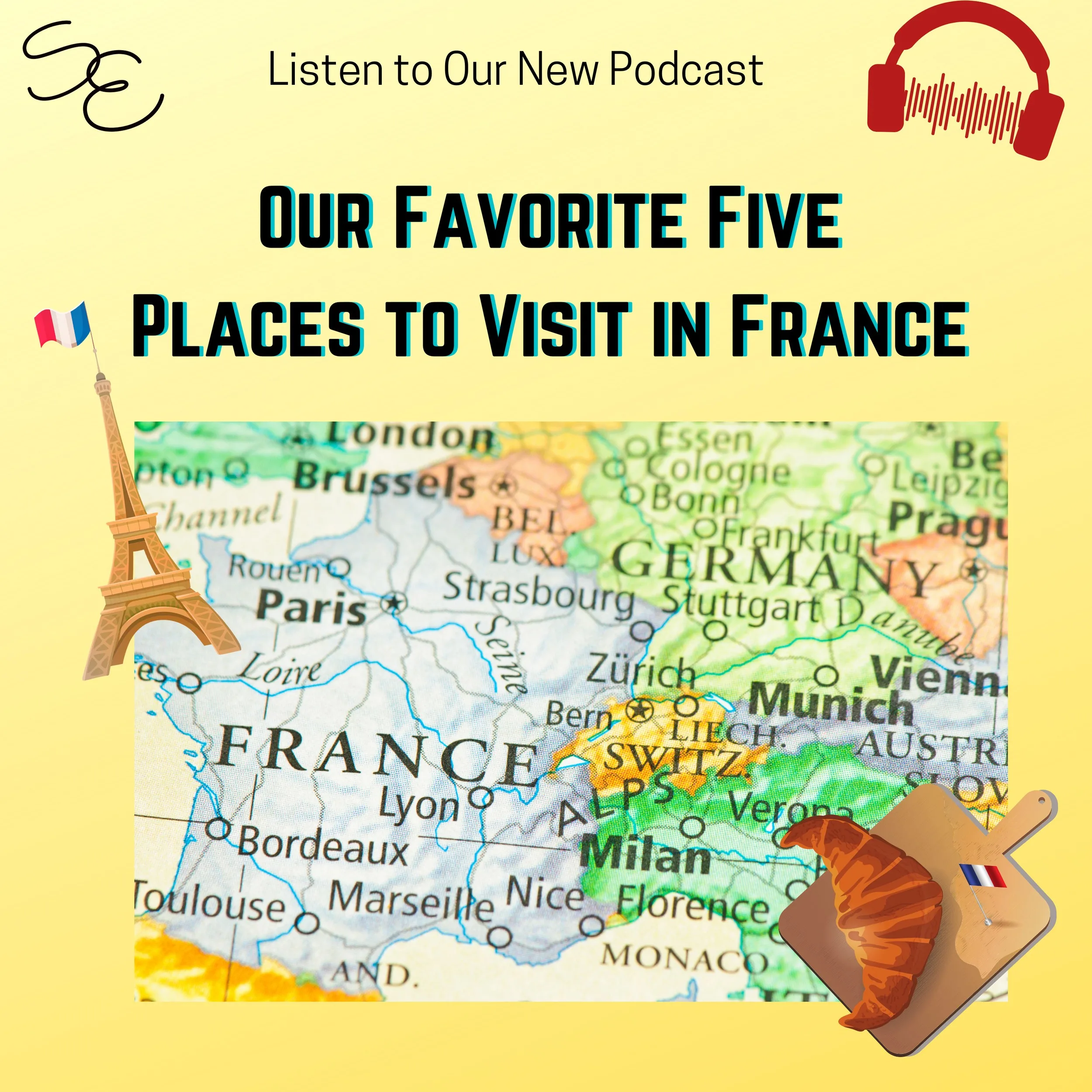
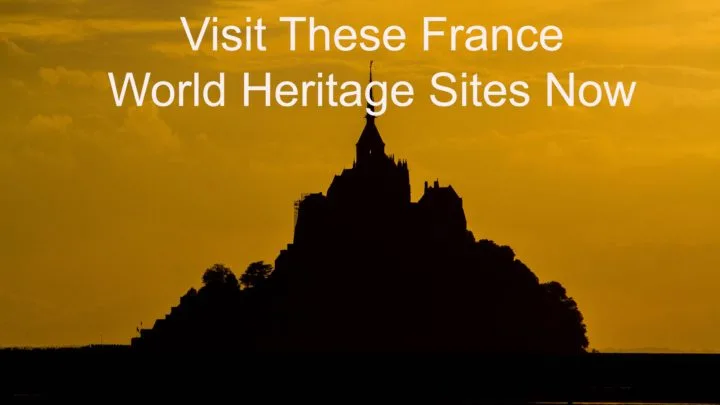
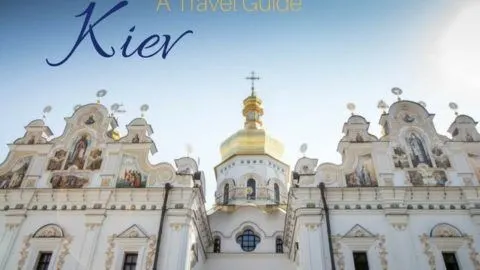
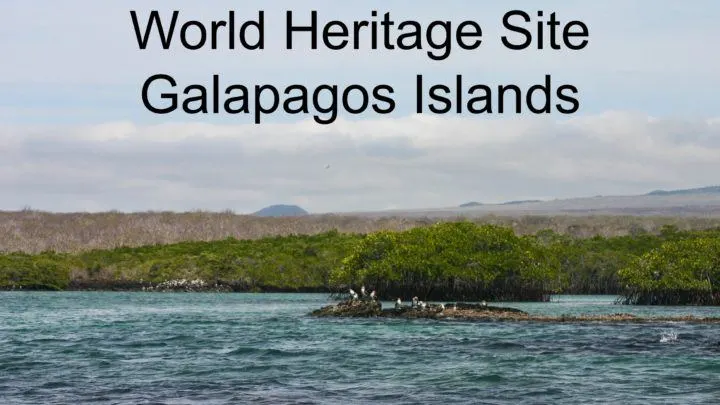
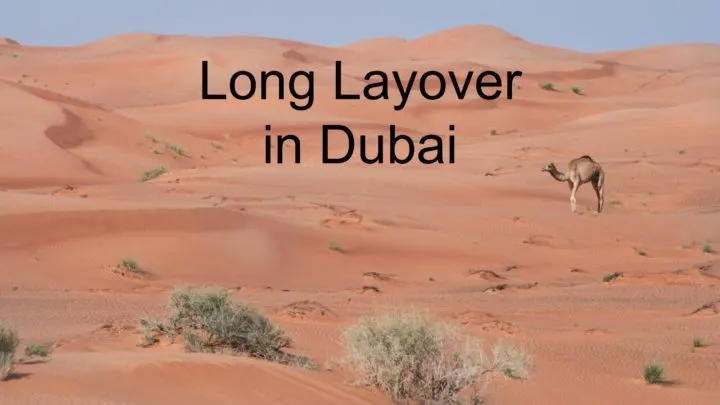
Geoff Kidd
Friday 9th of June 2023
Finally, finally managed to find time to listen to this one. I know Phoebe from a holiday home-owners group in France so it's been on my radar for months. Lovely to listen to all of your travel stories over the years.
Corinne Vail
Friday 9th of June 2023
Thanks Geoff!